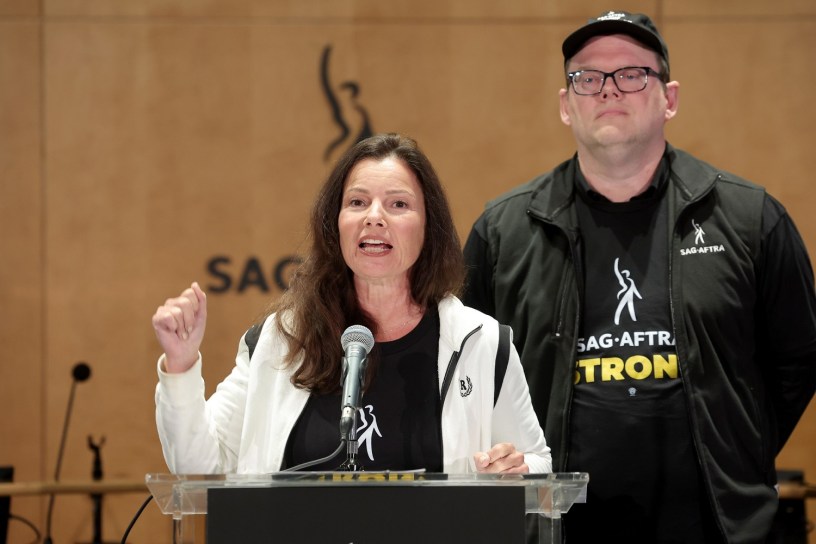The Australian production industry is bracing for the impact of an impending Hollywood shutdown, following news overnight that actors would join writers on the picket line.
In what is the first joint industrial action of its kind in more than 60 years, members of the Screen Actors Guild – American Federation of Television and Radio Artists (SAG-AFTRA), will walk off the job from midnight on Friday US time, standing with members of the Writers Guild of America, who have been on strike since May 1.
Among the productions impacted are multiple international titles lured to Australia via the Location Incentive, which may be on hiatus until the strike is resolved.
IF understands production on Universal’s Apples Never Fall, a series adaptation of Liane Moriarty’s novel of the same name that is filming in Queensland will be paused, while Variety reports that Mortal Kombat 2, which is being made on the Gold Coast at Village Roadshow Studios is also set to down tools.
Elsewhere on the Gold Coast, Screen Queensland confirmed the third season of NBCUniversal drama La Brea has wrapped filming and will not be impacted.
The action comes after the SAG-AFTRA negotiating committee voted unanimously to recommend a strike, having failed to reach an agreement with the Alliance of Motion Picture and Television Producers (AMPTP) — the entity that represents major studios and streamers, including Amazon, Apple, Disney, NBCUniversal, Netflix, Paramount, Sony and Warner Bros. Discovery – across four weeks of bargaining.
According to reports, the main points of difference for the guild are base and residual pay and the unregulated use of AI.
About 160,000 actors are believed to be working under agreements established by SAG-AFTRA, with the dispute meaning members will not be able to work on film or television productions, or promote projects through attending premieres or film festivals, conducting interviews, or via social media.
In announcing the strike in Los Angeles on Thursday US time SAG-AFTRA president Fran Drescher said those who the guild represented were “being victimised by a very greedy entity”.
“I am shocked by the way the people we have been in business with are treating us,” she said.
“I cannot believe it, quite frankly, how far apart we are on so many things. How they plead poverty, that they’re losing money left and right, when giving hundreds of millions of dollars to their CEOs. It is disgusting.”
The strike has received support from Australia’s Media Entertainment and Arts Alliance, with chief executive Erin Madeley saying the issues at the centre of the dispute – including fair compensation from streaming services and constraints around the use of artificial intelligence – were universal for actors around the world.
“Streaming services are raking in billions of dollars in revenue and earnings as their audiences continue to grow but these profits are not being shared fairly with actors,” she said.
“Although series budgets are increasing, that increase is not being reflected in the share of the money going to performers. Residuals – payments for the reuse of their work – are also much smaller on streamers compared to broadcast TV rates.
“In addition, artificial intelligence poses a new threat to the livelihoods of actors around the world and there need to be agreed rules around its use.”
In a statement published on Deadline, the AMPTP said the guild “had regrettably chosen a path that will lead to financial hardship for countless thousands of people who depend on the industry”.
“The AMPTP presented a deal that offered historic pay and residual increases, substantially higher caps on pension and health contributions, audition protections, shortened series option periods, and a groundbreaking AI proposal that protects actors’ digital likenesses for SAG-AFTRA members,” it said.
“A strike is certainly not the outcome we hoped for as studios cannot operate without the performers that bring our TV shows and films to life.”



